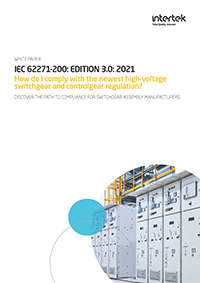Overview of ASTA certification types for electrical equipment compliance
ASTA (Association of Short-Circuit Testing Authorities) certification provides critical validation for bespoke electrical equipment through five distinct certificate types. These certifications enable manufacturers to demonstrate compliance with international safety standards while addressing diverse project requirements across power distribution systems, industrial installations, and specialized electrical components.
Core ASTA Certificate Categories
Verifies full adherence to every requirement within a specified standard through comprehensive testing protocols. This certification applies to finished products requiring complete validation for CE marking or international market access, such as:
- High-voltage switchgear assemblies (IEC 62271-200)
- Power transformers (IEC 60076 series)
- Low-voltage distribution boards (IEC 61439-3)
Manufacturers obtain this certification through witnessed testing at ASTA-recognized laboratories, with independent verification by Intertek engineers. The process includes full design validation and material compliance checks.
Confirms successful completion of mandatory type tests prescribed by specific standards. Used for:
- Circuit breaker validation (IEC 60947-2)
- Fuse performance testing (IEC 60269 series)
- Mechanical endurance assessments
This certification pathway is particularly valuable for custom-engineered solutions where full production certification isn't practical. Testing occurs under ASTA Observer supervision at any of Intertek's 30+ global facilities.
Validates partial compliance through targeted testing of manufacturer-specified parameters. Typical applications include:
- Material substitution validations
- Limited production run components
- Prototype evaluations
Enables incremental compliance demonstration while maintaining design flexibility. Test scope must be clearly defined during the certification request phase.
Extends existing certifications to accommodate:
- Design modifications
- Expanded operational ratings
- Alternative material specifications
Maintains certification continuity while documenting product evolution. Requires retesting of affected systems/components under original test protocols.
Documents non-standard or exploratory testing outcomes that fall outside formal certification parameters. Common uses include:
- Novel technology validation
- Custom rating verification
- Research & development support
While not a formal certificate, these reports provide technical evidence for regulatory submissions and client consultations.
Certification Comparison Table
|
Certificate Type |
Scope |
Validity Period |
Testing Requirements |
Typical Applications |
|
Complete Compliance |
Full standard adherence |
5 years |
All standard clauses |
CE marking support |
|
Type/Verification Tests |
Mandatory tests only |
3 years |
Prescribed test sequence |
Custom switchgear |
|
Selected Tests |
Client-defined parameters |
2 years |
Partial test coverage |
Material substitutions |
|
Supplementary |
Modified designs |
Matches base cert |
Affected systems only |
Rating expansions |
|
Test Report |
Non-standard assessments |
N/A |
Custom protocols |
Innovative components |
Get in touch with our experts to confirm the document you received is genuine.


